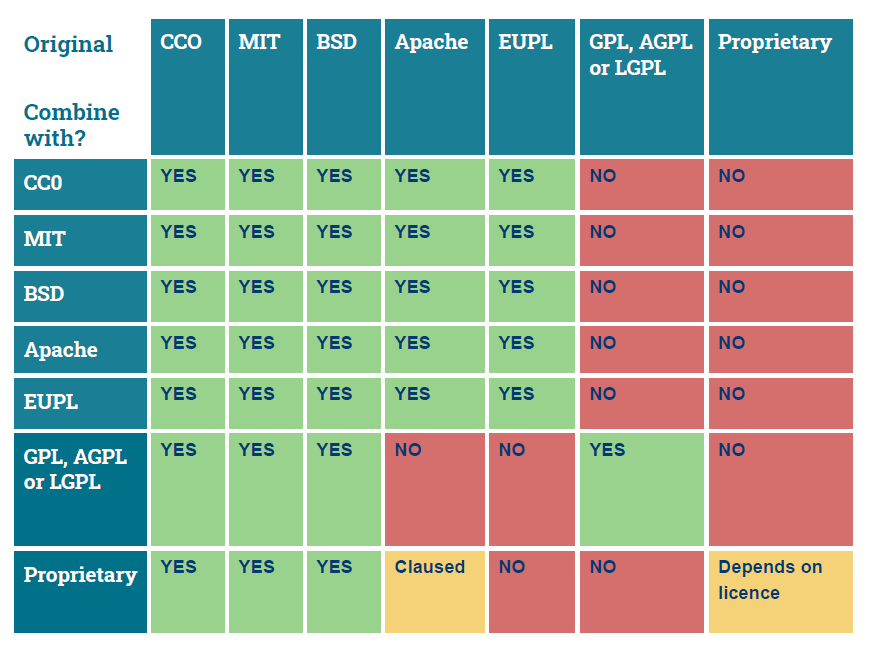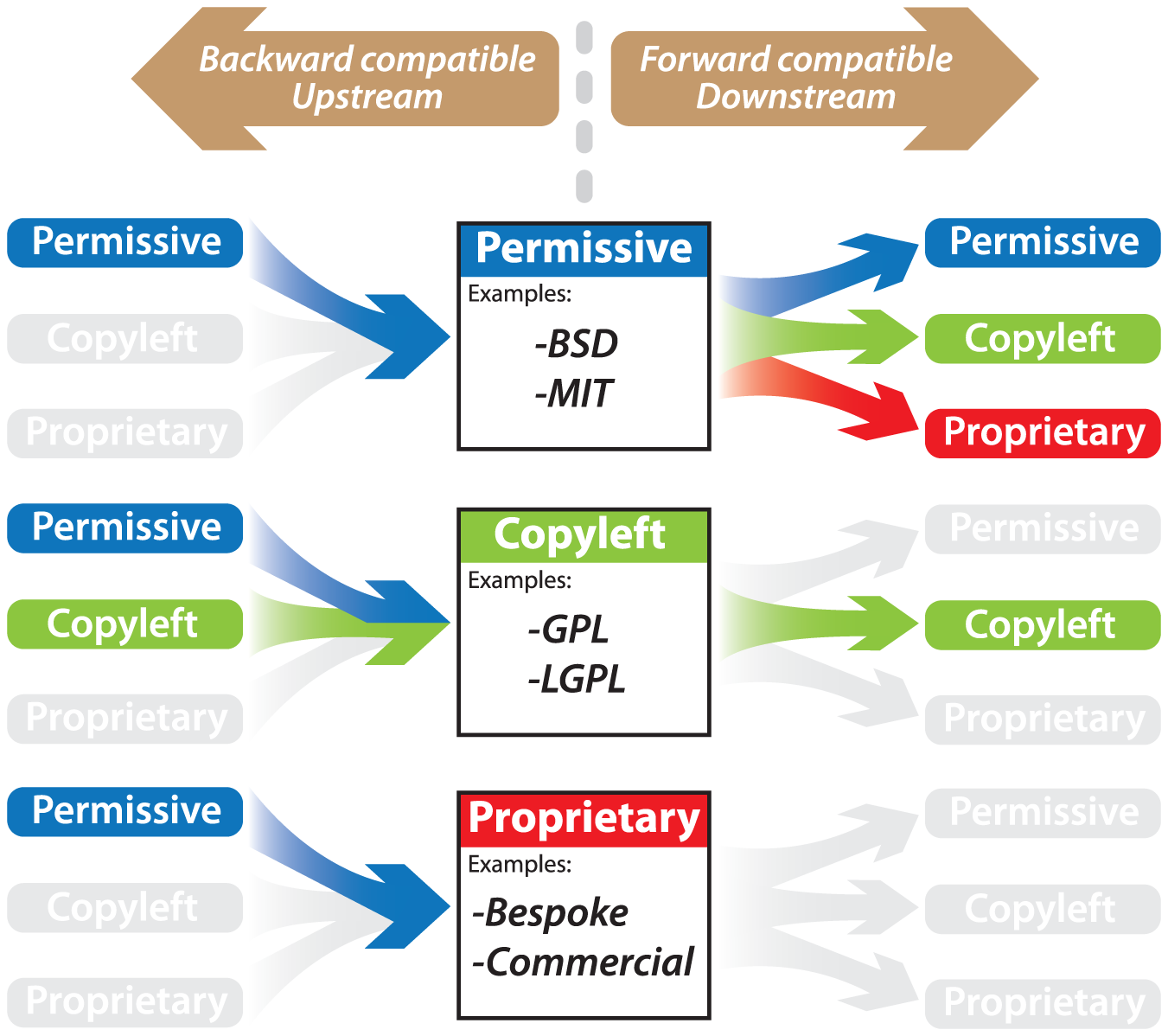A brief overview of the TU Delft Approved Software Licenses.
Permissive licences
Permissive: MIT, BSD, Apache, CC0
Permissive licenses allow you to (commercially) use, copy, modify, merge, publish, and distribute the software.
Licensed works, modifications, and larger works may be distributed under different terms and without source code.
CC0: Waives copyright and dedicates it to the public domain
MIT License: Short and simple license
BSD
BSD 2: Similar to MIT license (with more details)
BSD 3: Contains a clause restricting use of the names of contributors for endorsement of a derived code without specific permission
BSD 3 - Clear: Provides an option to place the OSS licensed material under patent
Apache Licence 2: User does not have to worry about infringing any patents (user is granted a licence to any patent that covers the software)
Restrictive licences
Restrictive/Copyleft: GPL, AGPL, LGPL, EUPL
Restrictive/Copyleft licenses allow you to (commercially) use, copy, modify, merge, publish, distribute the software
Derivative code must be open source and distributed under the same or equivalent license
GNU General Public Licence (GNU GPLv3, GPLv2): Does not permit incorporating your program into proprietary programs
GNU Lesser General Public License v3.0: Lighter version of GPL. A larger work using the licensed work through interfaces provided by the licensed work may be distributed under different terms and without source code for the larger work. Designed for library routines.
GNU Affero General Public License v3.0Stricter version of GPL. If you run a modified program on a server and let other users communicate with it there, then your server must also allow them to download the source code.
European Union Public Licence (EUPL): Created and approved by the European Commission. It is available in 23 European languages. Confirms with all existing (civil law) copyright laws of the EU (limitations of liability and warranty have been precisely defined).
Comparison of Licences
| Permissions | Conditions | Conditions | Conditions | Conditions | Limitations | |
|---|---|---|---|---|---|---|
| License | Patent use | Disclose source | Network use is distribution | Same License | State Changes | Trademark use |
| MIT | ||||||
| BSD v2, 3 | Y or N (BSDClear) | |||||
| Apache v2 | Y | Y | N | |||
| GPL v3 | Y | Y | Y | Y | ||
| AGPL | Y | Y | Y | Y | Y | |
| LGPL | Y | Y | Y (library) | Y | ||
| EUPL | Y | Y | Y | Y | Y | N |
| CCO | N | N | N | N | N | N |
See https://choosealicense.com/appendix/ for a complete overview
Compatability of licences
More Information
TU Delft Guidelines on Research Software
General:
ByteSized: Software Licences podcast episode
Using strong copyleft to build a sustainable business (25 min video)

